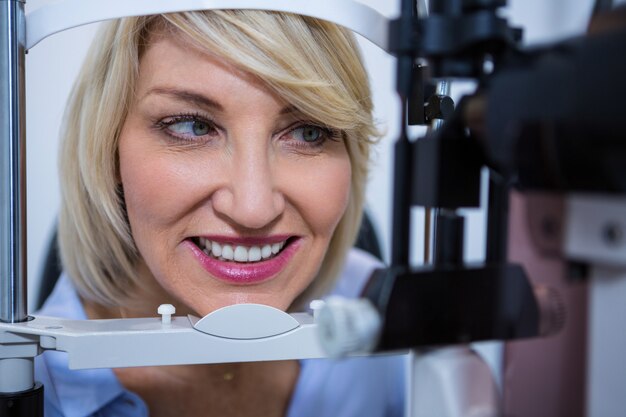Your Guide to What Type Of Lens Does Medicare Cover For Cataract Surgery
What You Get:
Free Guide
Free, helpful information about Cataract FAQ and related What Type Of Lens Does Medicare Cover For Cataract Surgery topics.
Helpful Information
Get clear and easy-to-understand details about What Type Of Lens Does Medicare Cover For Cataract Surgery topics and resources.
Personalized Offers
Answer a few optional questions to receive offers or information related to Cataract FAQ. The survey is optional and not required to access your free guide.
Understanding Medicare Coverage for Cataract Surgery: What Types of Lenses Are Included?
As we age, changes in our vision can be more than just a minor inconvenience; they can significantly impact our quality of life. One of the most common vision issues among older adults is cataracts, a condition that leads to cloudy vision. Cataract surgery, which replaces the cloudy natural lens with an artificial one, is a crucial procedure towards restoring clear vision. For many seniors, questions often arise about coverage—specifically, what kind of lenses does Medicare cover during cataract surgery? This guide aims to provide clarity on this important topic, exploring eligibility, options, and considerations for those navigating their healthcare choices.
What is Cataract Surgery?
Cataract surgery involves the removal of the eye's naturally clouded lens and replacing it with an artificial intraocular lens (IOL). While it may sound daunting, cataract surgery is one of the most common and safest surgical procedures performed worldwide. It is typically recommended when cataracts begin to seriously impede daily activities, such as reading or driving.
How Does Medicare Cover Cataract Surgery?
Understanding Medicare coverage for cataract surgery is crucial to managing expenses effectively. Here's what you need to know:
- Medicare Part B generally covers cataract surgery if it is deemed medically necessary. This includes standard surgical procedures and the insertion of a basic lens.
- The procedure is considered outpatient, meaning most of the cost-sharing comes under Part B, including the pre-surgical exams, surgery itself, and post-operative care.
- Covered services typically include the cost of the surgery, a standard intraocular lens, and one set of prescription eyeglasses or contact lenses following the procedure.
Types of Lenses Medicare Covers
Standard Monofocal Lenses
Medicare fully covers standard monofocal IOLs. These lenses have a single focal point and usually improve vision at one range—either near or far. Patients often rely on glasses for tasks not covered by the IOL's range.
Features:
- Single focus: Improve vision for either distance or near sight.
- Affordable: As the financially viable option, Medicare covers them completely under standard conditions.
Premium Lenses: Are They Covered?
While Medicare covers the cost of basic lenses, premium lenses, like multifocal or toric lenses, typically come with additional out-of-pocket costs. These lenses offer benefits like correcting astigmatism or providing multiple focus zones, which Medicare does not cover.
Types of Premium Lenses:
- Multifocal Lenses: Allow vision correction at various distances. Patients may find reduced dependency on glasses for different activities.
- Toric Lenses: Correct astigmatism and can be a game-changer for those who have this condition alongside cataracts.
Costs Associated with Premium Lenses
Patients opting for premium lenses may need to pay additional expenses out of pocket, as these technologies are not covered under standard Medicare plans. This highlights the importance of understanding what benefits your specific coverage has and planning financially if you choose an option not supported by Medicare.
Additional Considerations
Exploring Vision Coverage Plans
For many, the pursuit of enhanced lens options might lead to exploring additional vision insurance plans that can cover premium IOLs. It's beneficial to look into what supplementary plans offer and what portion of these expenses they might cover.
Discussing Options with Your Eye Care Provider
A crucial step before moving ahead with cataract surgery is to discuss at length with your eye care provider. Having an open discussion can help you understand:
- The pros and cons of each lens type.
- How their recommendations can improve your quality of life.
- What additional costs you might incur and how they align with your budget.
Summary of Key Points: Medicare and Cataract Surgery Lenses
📝 To keep things clear and simple, here's a summarized breakdown of key points:
- 💡 Standard Coverage: Medicare covers basic cataract surgery and monofocal lenses.
- 💳 Premium Lens Costs: Multifocal and toric lenses are not fully covered by Medicare; out-of-pocket costs should be expected.
- 👓 Post-Surgery Glasses: Medicare includes coverage for one pair of eyeglasses after surgery.
- 🔍 Additional Insurance: Consider supplementary vision plans for further needs.
- 🗣️ Consultation Importance: Engage with healthcare providers to explore personalized lens options and budget alignments.
Closing Thoughts
Choosing the right lens for cataract surgery involves a comprehensive understanding of the options available and their long-term implications on your vision quality. While Medicare provides substantial coverage for basic lenses, those interested in advanced technology of premium options may need to explore alternative funding or insurance support. By staying informed and having open conversations with your eye care provider, you can make empowered choices that dramatically improve your vision health and lifestyle.
What You Get:
Free Cataract FAQ Guide
Free, helpful information about What Type Of Lens Does Medicare Cover For Cataract Surgery and related resources.

Helpful Information
Get clear, easy-to-understand details about What Type Of Lens Does Medicare Cover For Cataract Surgery topics.

Optional Personalized Offers
Answer a few optional questions to see offers or information related to Cataract FAQ. Participation is not required to get your free guide.


